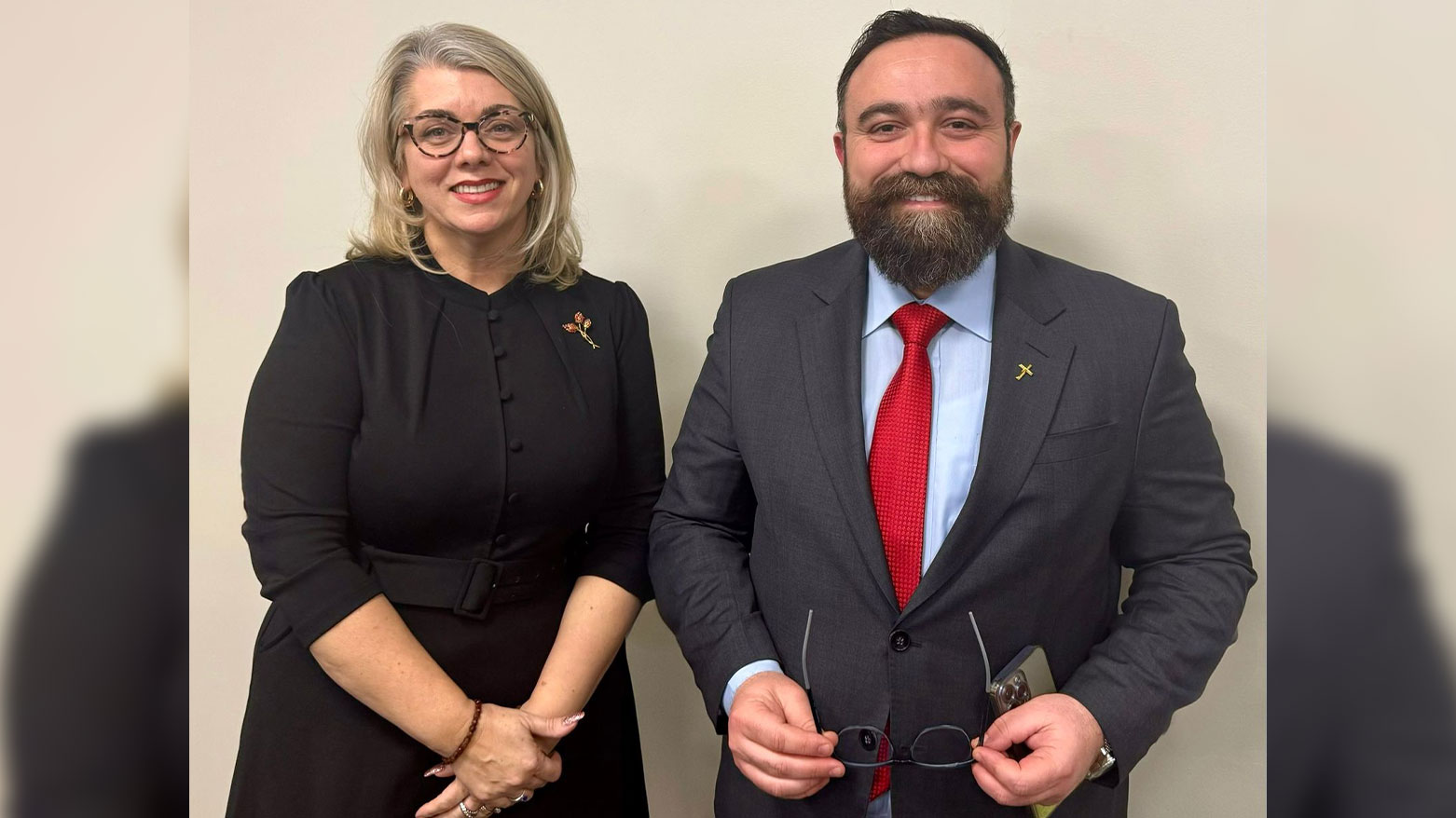KRG Minister Advocates for Religious Freedom, Minority Rights in Washington Meetings
The meeting underscored the KRG’s firm commitment to promoting peaceful coexistence and protecting the rights of religious and ethnic minorities.

Feb. 8, 2025
ERBIL(Kurdistan24) – In a bid to strengthen religious freedoms and minority rights in the Kurdistan Region and Iraq, Ano Jawhar Abdulmaseeh Abdoka, Kurdistan Region’s Minister of Transport and Communication held key discussions with Ineke M. Stoneham, Head of the Africa and Near East Unit in the Office of International Religious Freedom at the US Department of State.
The meeting, held at the US Institute of Peace in Washington, underscored the KRG’s firm commitment to promoting peaceful coexistence and protecting the rights of religious and ethnic minorities.
During the discussion, Minister Abdoka highlighted the concerns and demands of Iraq’s Christian communities, including Chaldeans, Assyrians, Syriacs, and Armenians.
He emphasized the Christian Alliance’s legitimate demands, outlining three critical areas requiring urgent attention to protect minority rights and ensure fair political representation.
Key Minority Rights Concerns
- Security in the Nineveh Plain – The minister called for the withdrawal of militias from the Nineveh Plain, arguing that only constitutional security forces should be responsible for protecting the region. This, he asserted, would ensure that local communities, including Christian minorities, have the ability to safeguard their historical lands without external interference.
- Electoral Reforms for Christian Representation – Abdoka stressed the need to amend Iraq’s parliamentary and local election laws regarding the Christian quota. He proposed limiting the voting rights for Christian quota seats exclusively to Christian voters, thereby preventing militias and external forces from manipulating the political representation of Christian communities.
- Implementation of Article 140 of the Iraqi Constitution – He urged the full implementation of Article 140, which pertains to disputed territories, to secure a long-term and constitutional solution for minorities in their ancestral lands. This, he argued, would provide legal protections and ensure the stability of these communities in Iraq’s diverse sociopolitical landscape.
KRG’s Commitment to Religious Freedom
Minister Abdoka reaffirmed that the KRG remains a regional model for religious tolerance and peaceful coexistence.
The Kurdistan Region has long been a sanctuary for persecuted minorities, offering a safe haven for communities facing discrimination and violence in other parts of Iraq.
The meeting at the US Institute of Peace reflects growing international engagement in addressing the plight of religious minorities in Iraq. As discussions continue, the KRG remains committed to advocating for policies that uphold human rights, protect historical communities, and promote a more inclusive political system.
The visit also signals an effort to strengthen diplomatic ties between the Kurdistan Region and the United States, with a shared commitment to ensuring religious freedom and minority rights remain central to Iraq’s democratic future.